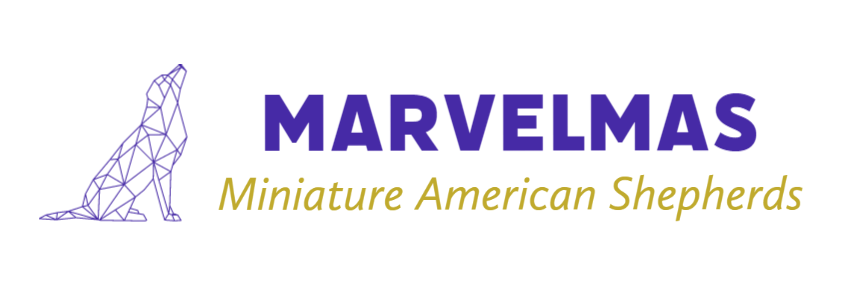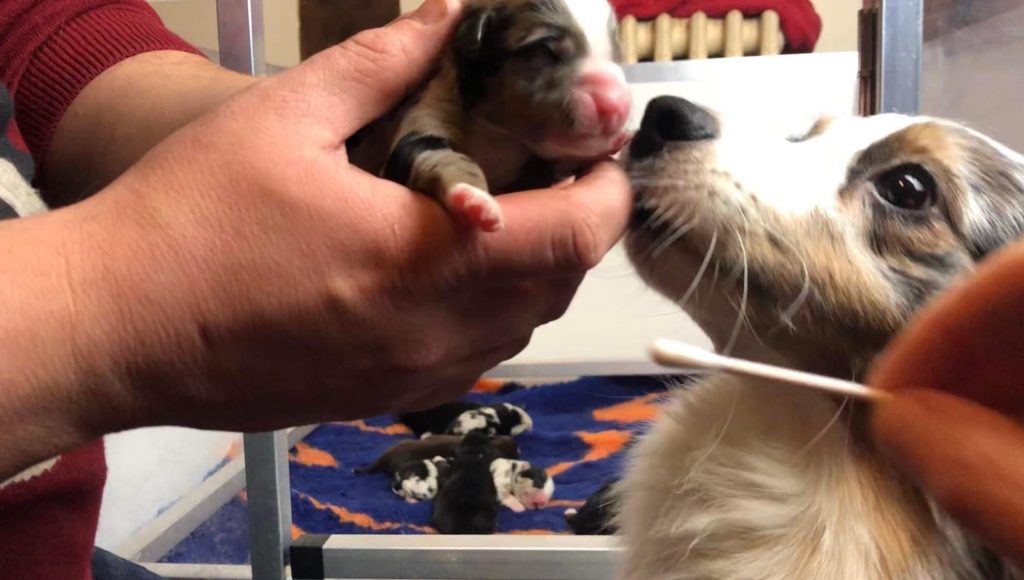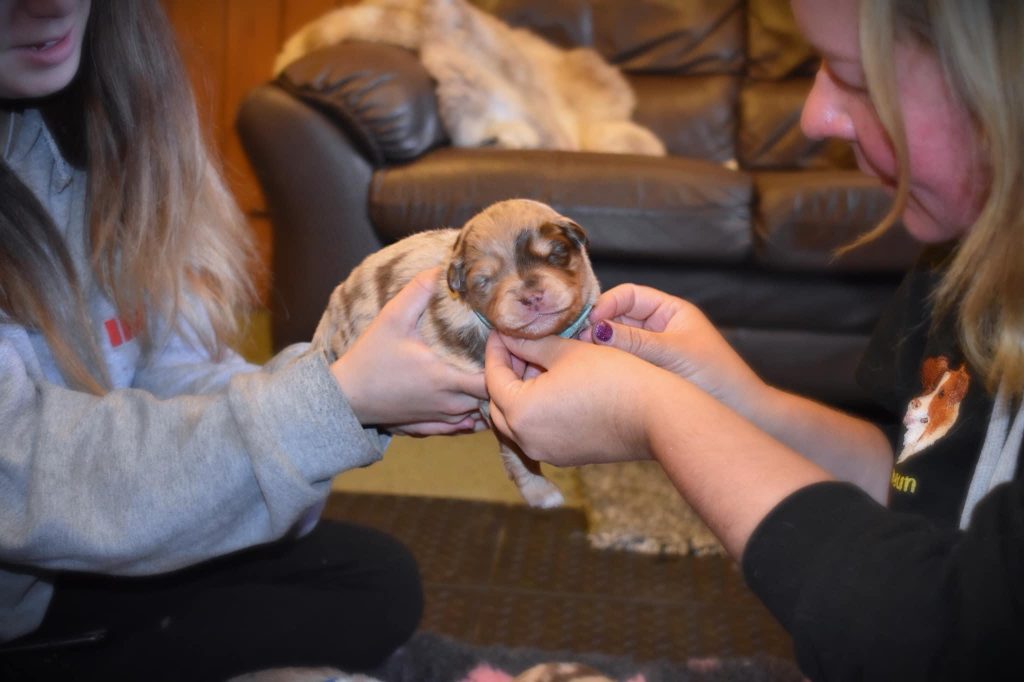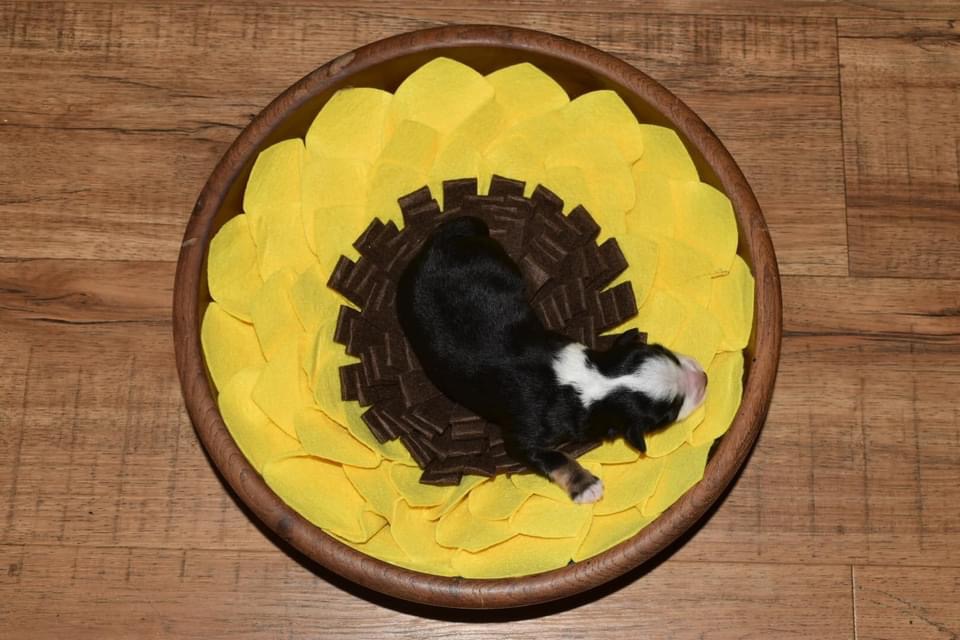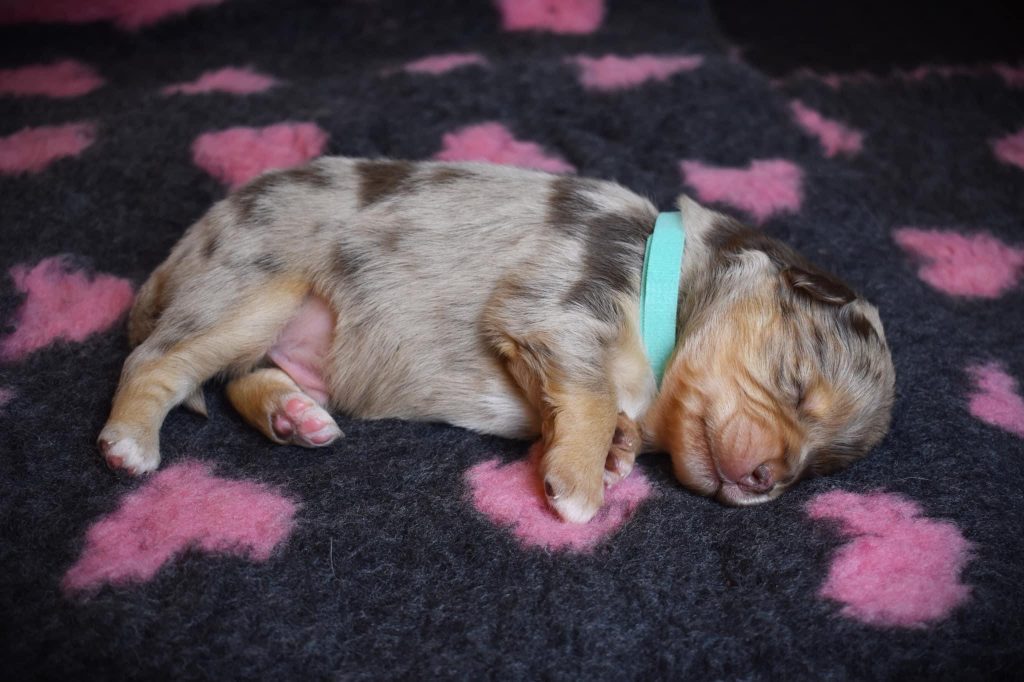How do we raise our puppies to excel?
We want our puppies and their owners to have long, happy, healthy and successful futures together. As such, we aim to provide our puppies with the best start in life and to future proof them at the beginning our their journey.
The Basics

Raised in our House
We don’t have kennels, puppies are family members within a home environment from the day they are born.

Highly Stimulated
We stimulate every sense a puppy has right from the start, helping build strong, inquisitive, confident and competitive companions.

Trained to Settle
A key component of a confident companion is an ability to settle, at home, out and about, while travelling, with people or alone.

Thoughtfully Socialized
Socialisation is not about exposing a puppy to as much as possible, instead we consider the individual and socialize them with care so they aren’t overfaced and build trust in situations we put them in.
Rearing Overview
The Prenatal Stage
1 week before due date
Whelping Box
Set up the whelping pen to provide a calm stress-free environment.
Touch The Puppies
Puppies are able to respond to the touch of mom’s belly being rubbed late in pregnancy.
Lots of Attention
Studies show that the physical and emotional health of the mother will affect the health of her puppies.
Loving on a pregnant mom results in puppies that are more docile and enjoy being touched as adults.
The Neonatal Stage
Until 2 weeks old
Senses
Puppies are only able to smell, feel touch and warmth. Their eyes are closed, and they cannot hear. Puppies experience soft whelping collars and different surfaces to lay on.
Weighing
We weigh twice daily to make sure that they are growing and supplemented if necessary.
ENS
Generally we start Early Neurological Training (ENS) from days 3-16. Puppies undergo a period of rapid neurological growth and development during this time and studies show that puppies that undergo ENS have an improved heart rate, are more tolerant to stress, have a greater resistance to disease, and are more successful in competitive situations.
ESI
Early scent Introductions (ESI) begin at this time. We expose each puppy to one novel scent each day, stimulating the development of the nose and scenting abilities.
The Transitional Stage
2-3 weeks old
Eyes Opening
To aid their eyesight we have low level LEDs positioned around the rim of the whelping box that we can set various slow flash patterns for, as well as light up toys.
Starting to Hear
We introduce a variety of sounds during this period, from everyday household sounds, to recorded gunfire.
Starting to Move
Puppies experience a new surface daily to crawl across, from foil to wood, fleece to rubber.
The Socialization Period
Around 4 weeks
Life Skills
During this time we give puppies the skills that they will need to live in a human world by focusing on teaching our puppies communication, emotional stability, habituation, enrichment, lifeskills and love.
Some of the Skills we Build Now Include
- New experiences multiple times a week
- Problem solving
- Startle & recovery
- Basic manners
- Introduction to water
- Introduction to water
- Basics of leash walking
- Balance and a sense of proprioception
Experiences Our Puppies Encounter
Animals and People
Exposure to our dog-savvy cats, livestock and a range of people of all ages
Cats
Livestock
Children
Sensory Items
From new daily smells, to surfaces and sounds
Smells
Surfaces
Sounds
Tactile Items
Daily new toys, obstacle courses and enrichment puzzles
Objects
Obstacles
Puzzles
Environments
Various rooms, in the house, the safety of the garden and puppy buggy in town
Inside
Outside
Town
Basic Training
We aim for puppies to leave with basic skills mastered
Litter Training
Crate Training
Manding /Clicker Work
Life Skills
Grooming, travel, eating a variety of foods
Bath/Brush/Nails
Travel
Food / Treats
Foundations
Foundations for pet and sporting dogs
Recall
Toy/Food Swap
Toy Play
Assessments
We have 4 elements to our puppy assessment, that enable us to help match the best puppy to the best home.

Aptitude
Aptitude testing is a snapshot of where the puppy is at that time in their training, and where their temperament lies.
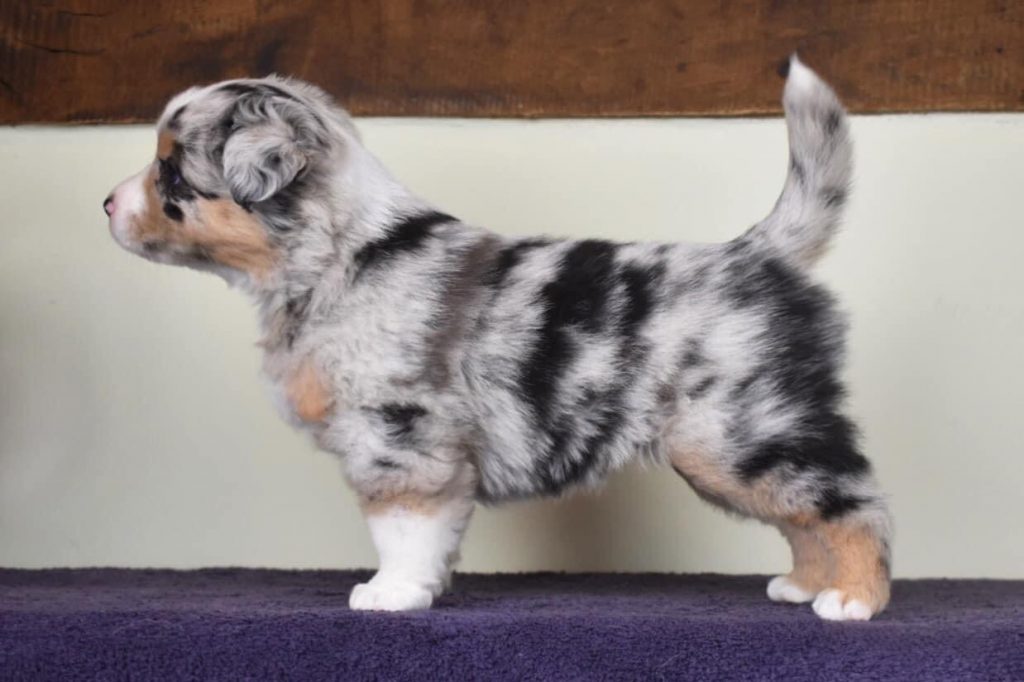
Structure
We evaluate the structure of every puppy to determine if they are show prospects, sport prospects or family companions.
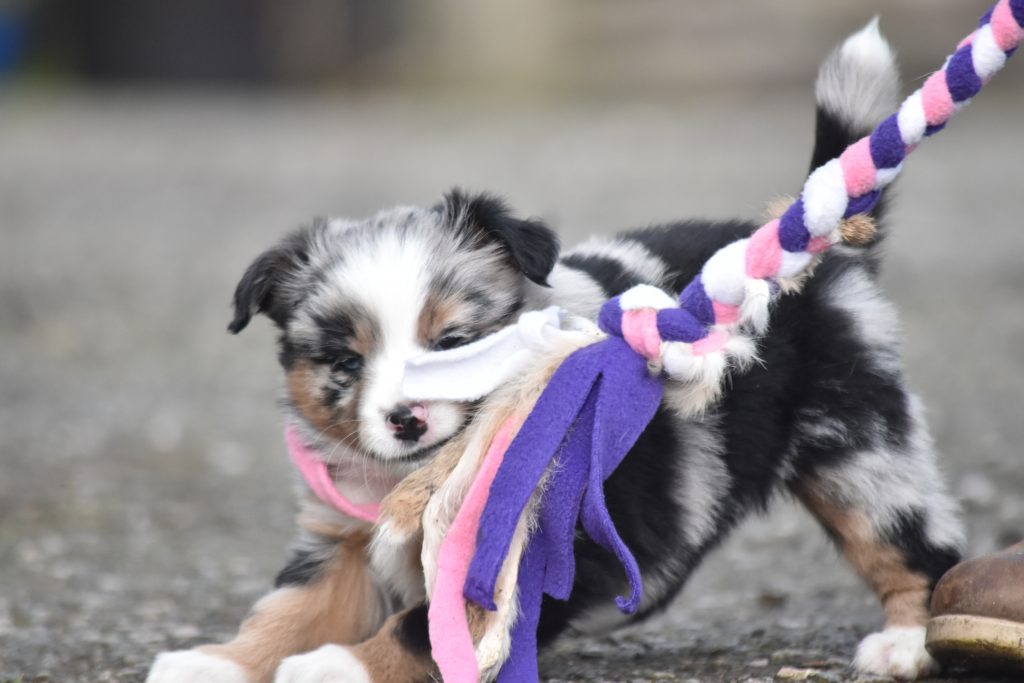
Toy Drive
We evaluate the toy drive for each puppy, as well as their treat value.
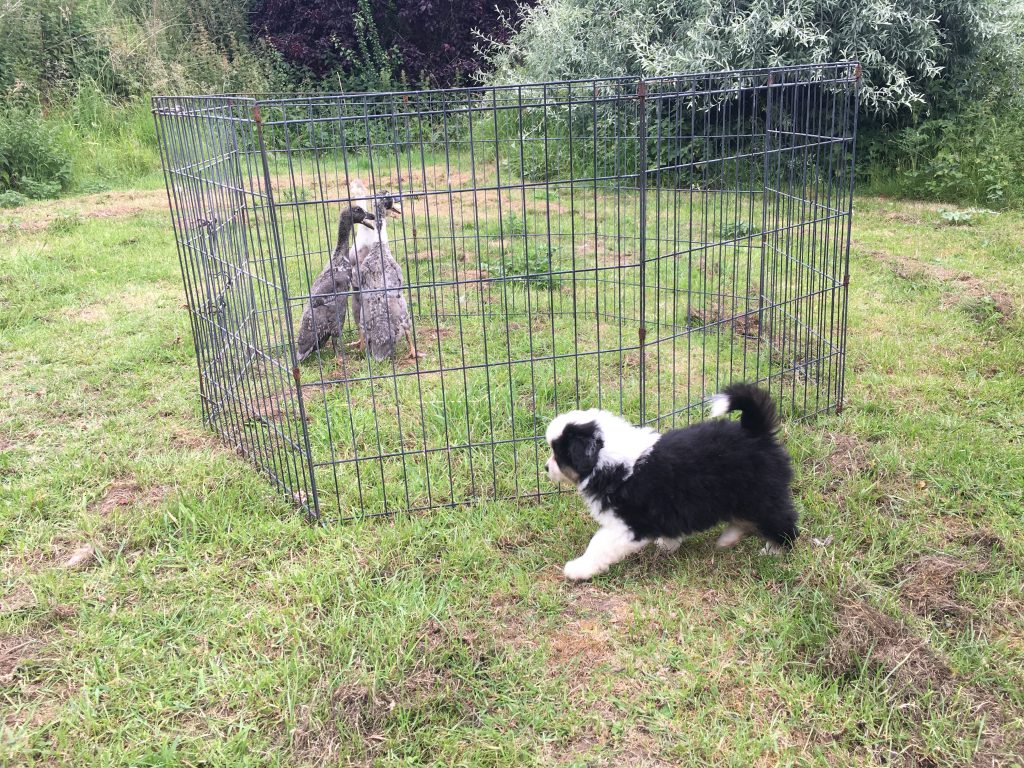
Instinct
Our puppies have their herding instinct assessed with our runner ducks.
